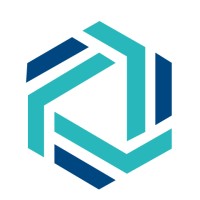In the dynamic world of software development, one framework stands tall, powering the technology-driven future: .NET. In this article, we unveil the pioneers, the visionaries, and the game-changers—the Top .NET Development Companies. These companies are the architects of innovation, crafting robust, secure, and scalable solutions that transcend boundaries.
Dive into the realm of code mastery as we explore their expertise, delve into their solutions, and uncover the secrets behind their success. Whether you’re a business seeking a digital transformation partner or a developer looking for inspiration, join us on this journey to unlock the limitless possibilities of .NET development.
Apriorit
Specializing in smart contract development, cybersecurity services, and advanced data management technologies, Apriorit is based in Needham, Massachusetts. They provide services in various frameworks including Python Django, Node.js, AngularJS, VueJS, and .Net.
Kanhasoft
Located in Ahmedabad, India, Kanhasoft offers custom web and mobile application development services, including SAAS app development. They work with frameworks like Node.js, Python Django, Laravel, React.JS, Next.js, CodeIgniter, CakePHP, and .Net.
Startbit IT Solutions Pvt. Ltd.
Based in Jaipur, India, Startbit is known for expertise in outsourced web development and custom software development, focusing on Website, eCommerce development, Mobile APP development, and custom frameworks like Ruby on Rails, Node.js, .Net, Laravel, React.JS, CodeIgniter, AngularJS, and CakePHP.
Softjourn
Operating from Fremont, California, Softjourn offers custom frameworks in .Net, Node.js, Ruby on Rails, and Symfony. They are recognized for their ability to bring innovative ideas to life.
VironIT

A reputable custom software and PHP development company based in New York City, VironIT has completed over 600 projects across various industries worldwide. They work with frameworks like .Net, Node.js, AngularJS, and CakePHP.
Susco Solutions
![]()
Specializing in .NET software, Susco Solutions is based in New Orleans, Louisiana, and focuses on delivering intuitive software solutions for mid-market enterprises. They work with frameworks like .Net, React.JS, and Node.js.
Velvetech

A Chicago, Illinois-based custom software development company, Velvetech offers a range of services and is equipped to handle projects involving .Net, VueJS, AngularJS, React.JS, and Node.js.
DevExpress Universal

This suite offers a range of .NET products and controls, catering to diverse development needs.
Devart dotConnect

Specializing in integrating Salesforce.com’s cloud CRM and Database.com cloud database with Microsoft data development technologies, they offer Entity Framework provider and ADO.NET provider.
Our Criteria
Selecting the top .NET development companies requires a careful evaluation process. In this section, we delve into the specific criteria we used to identify and rank the companies that made it to our list of the top .NET development firms. These criteria encompass various aspects, ensuring a comprehensive assessment of each company’s capabilities and performance.
1. Expertise in .NET Technologies
The core criterion for inclusion in our list is a company’s expertise in .NET technologies. We thoroughly examined each company’s proficiency in working with the .NET framework, including ASP.NET, .NET Core, and related technologies. We considered the depth of their experience, the number of successful projects, and their ability to leverage .NET for building robust, scalable, and secure applications.
2. Portfolio of .NET Projects
A company’s portfolio is a reflection of its capabilities and the diversity of its work. We assessed the types of projects the companies have undertaken, including web applications, mobile apps, enterprise solutions, and more. We looked for evidence of innovation, problem-solving, and the ability to meet clients’ unique requirements through .NET development.
3. Client Reviews and Testimonials
Client feedback is invaluable when evaluating service providers. We scoured client reviews, testimonials, and case studies to gauge the level of satisfaction among past and present clients. Positive feedback, client retention, and successful collaborations were considered as strong indicators of a company’s commitment to client satisfaction.
4. Technology Stack
Apart from .NET, we evaluated the companies’ proficiency in using complementary technologies and tools. A comprehensive technology stack that includes databases, front-end frameworks, and third-party integrations is crucial for delivering complete solutions. We assessed how well each company incorporates these elements into their .NET projects.
5. Innovation and Adaptability
In the rapidly evolving tech landscape, adaptability and innovation are key. We looked at how these companies stay updated with the latest trends and emerging technologies within the .NET ecosystem. Companies that actively embrace new tools and methodologies to enhance their development process were given higher consideration.
6. Scalability and Performance Optimization
Scalability and performance are paramount in modern software development. We examined each company’s approach to building applications that can handle growing user bases and high loads. Optimization techniques, load testing, and performance monitoring were among the factors we considered.
7. Security and Compliance
Security is non-negotiable in software development. We assessed the measures each company takes to ensure the security of the applications they build. Compliance with industry standards, data protection regulations, and best practices for secure coding were scrutinized.
8. Project Management and Communication
Effective project management and clear communication are essential for successful collaborations. We evaluated each company’s project management methodologies, communication channels, and transparency in handling client interactions. Companies that prioritize clear and efficient communication were given a higher rating.
9. Industry Recognition and Awards
Industry recognition and awards can provide insight into a company’s reputation and excellence in .NET development. We considered any accolades, certifications, or recognition received by the companies from reputable industry bodies.
10. Clientele and Diverse Industries
The variety of industries served by a .NET development company can indicate its adaptability and versatility. We looked for companies that have successfully delivered solutions across a range of sectors, including healthcare, finance, e-commerce, and more.
By carefully assessing these criteria, we identified and ranked the top .NET development companies that excel in delivering high-quality, innovative, and scalable solutions. Our goal is to provide you with valuable insights to help you make informed decisions when choosing a .NET development partner for your projects.
Industry Overview
The world of software development is constantly evolving, and .NET development remains at the forefront of innovation. As we explore the top .NET development companies, it’s essential to understand the broader industry landscape in which they operate. Here, we provide an industry overview to shed light on the significance of .NET development in today’s tech ecosystem.
The Relevance of .NET Development
.NET, developed by Microsoft, is a powerful and versatile framework that has stood the test of time. It has evolved into a comprehensive ecosystem that encompasses a wide range of technologies, including ASP.NET, .NET Core, and Xamarin. This adaptability has allowed .NET to remain relevant across various domains, from web and desktop applications to cloud-based solutions and mobile apps.
Cross-Platform Compatibility
One of the notable advancements in the .NET world is the emergence of .NET Core, which later evolved into .NET 5 and beyond. .NET 5 introduced cross-platform capabilities, enabling developers to build applications that run seamlessly on Windows, Linux, and macOS. This cross-platform compatibility has expanded the reach of .NET and made it a preferred choice for modern software development.
Cloud Integration
Cloud computing has transformed the way applications are developed and deployed. .NET development has kept pace with this shift by offering robust cloud integration options through Azure, Microsoft’s cloud platform. Developers can leverage Azure services to build scalable and cost-effective solutions, making .NET a valuable choice for cloud-native applications.
Security and Compliance
In an era of increasing cybersecurity threats and regulatory requirements, security is a top priority. .NET provides built-in security features and libraries that assist developers in creating secure applications. Additionally, compliance with data protection regulations such as GDPR is easier to achieve with the tools and practices available in the .NET ecosystem.
Productivity and Efficiency
.NET development emphasizes productivity and efficiency. Visual Studio, Microsoft’s integrated development environment (IDE), offers a rich set of tools that streamline the development process. Features like IntelliSense, debugging capabilities, and code analysis contribute to faster development cycles and higher code quality.
Versatility Across Industries
One of the strengths of .NET development is its versatility across industries. Companies operating in sectors as diverse as healthcare, finance, e-commerce, education, and manufacturing have embraced .NET for its ability to address industry-specific challenges. This adaptability has made .NET a go-to choice for businesses looking to digitize and innovate.
Community and Support
The .NET community is vibrant and continuously growing. Developers worldwide contribute to open-source projects, share knowledge, and collaborate on solutions. This sense of community fosters learning, innovation, and the availability of a vast repository of resources for .NET developers.
Future Outlook
Looking ahead, .NET development remains poised for growth and innovation. Microsoft’s commitment to the framework, coupled with the adoption of .NET 6 and beyond, demonstrates a strong focus on modernization and the evolving needs of developers. .NET’s position as a versatile and robust ecosystem ensures its relevance in the ever-changing tech landscape.
In summary, .NET development continues to play a pivotal role in the software development industry. Its adaptability, cross-platform capabilities, cloud integration, and strong community support make it an attractive choice for businesses seeking to create cutting-edge solutions. As we explore the top .NET development companies, keep in mind the dynamic and influential role that .NET plays in shaping the future of technology.
NET Development Challenges and Solutions
While .NET development offers a multitude of advantages, it is not without its challenges. Understanding and addressing these challenges is essential for delivering successful projects. In this section, we explore some common challenges faced by .NET developers and the solutions that help overcome them.
1. Compatibility Issues
Challenge: As .NET evolves, compatibility issues may arise when migrating applications to newer versions of the framework. This can lead to disruptions in existing workflows and functionality.
Solution: Comprehensive testing and evaluation of compatibility are crucial before migrating to a new .NET version. Tools like the “.NET Portability Analyzer” can assist in assessing the readiness of your codebase for migration. Implementing version control systems also helps manage code changes effectively.
2. Performance Optimization
Challenge: Achieving optimal performance can be challenging, especially when dealing with large-scale applications or high user loads. Inefficient code and database queries can lead to sluggish performance.
Solution: Performance profiling tools like “Visual Studio Profiler” help identify bottlenecks and areas for improvement in your application. Developers can optimize code, implement caching mechanisms, and fine-tune database queries to enhance performance. Load testing tools like Apache JMeter or Microsoft’s Visual Studio Load Testing can validate the application’s performance under stress.
3. Security Concerns
Challenge: Security breaches and vulnerabilities are constant threats in the digital landscape. .NET applications are no exception, and protecting sensitive data and ensuring secure coding practices are essential.
Solution: Employ security best practices, such as input validation, authentication, and authorization mechanisms, to safeguard your .NET applications. Utilize security libraries like Microsoft’s “AntiXSS Library” and conduct regular security audits and code reviews. Stay informed about the latest security updates and patches for .NET components.
4. Cross-Platform Development
Challenge: While .NET Core and .NET 5+ offer cross-platform capabilities, achieving consistent behavior and performance across different operating systems can be challenging.
Solution: Prioritize platform-agnostic development by adhering to .NET Standard, which defines a common set of APIs for all .NET implementations. Extensive testing on different platforms is crucial to identify and resolve platform-specific issues. Leverage containerization technologies like Docker to ensure consistent deployment environments.
5. Code Maintainability
Challenge: As software projects grow in complexity, maintaining clean, maintainable code becomes increasingly challenging. Codebases can become cluttered, leading to reduced development speed and increased bug count.
Solution: Adopt coding standards and practices like SOLID principles and design patterns to promote clean and maintainable code. Regular refactoring and code reviews are essential for codebase health. Utilize tools like ReSharper or Roslyn Analyzers to enforce coding standards and identify code smells.
6. Continuous Integration and Deployment (CI/CD)
Challenge: Implementing effective CI/CD pipelines for .NET projects can be intricate, particularly when managing multiple environments and dependencies.
Solution: Leverage CI/CD tools such as Jenkins, Travis CI, or Azure DevOps to automate the build, testing, and deployment processes. Create well-defined release pipelines that incorporate testing at each stage. Containerization and orchestration tools like Kubernetes simplify the deployment of .NET applications to various environments.
7. Keeping Up with Technological Advancements
Challenge: The fast-paced nature of the tech industry means that staying current with the latest .NET advancements and tools can be demanding.
Solution: Encourage continuous learning among your development team. Invest in training and certification programs for .NET technologies. Engage with the .NET community through forums, conferences, and user groups to stay updated on best practices and emerging trends.
By recognizing these challenges and implementing the corresponding solutions, .NET development teams can navigate the complexities of software development effectively. Addressing these challenges not only enhances the quality of .NET applications but also ensures their long-term success.
Wrapping Up
In the ever-evolving world of software development, the role of .NET remains pivotal. As we explored the top .NET development companies, it’s evident that this framework continues to shape the technology landscape, offering versatility, scalability, and innovation to businesses across the globe.
.NET development is not without its challenges, but these hurdles are met with ingenious solutions. Compatibility issues are addressed through comprehensive testing, and performance optimization is achieved with profiling and fine-tuning. Security concerns are mitigated through best practices, and cross-platform development is made feasible with platform-agnostic coding.
Maintaining clean, efficient code is an ongoing commitment, and CI/CD pipelines streamline deployment processes. Staying abreast of technological advancements is crucial in a fast-paced industry, and fostering a culture of continuous learning empowers developers to adapt and excel.
The top .NET development companies showcased in this article exemplify excellence in their craft. Their expertise, commitment to quality, and innovative solutions are testaments to the capabilities of the .NET framework.
As the technology landscape continues to evolve, .NET remains a trusted companion for businesses seeking to build robust, scalable, and secure applications. The .NET community thrives, offering a wealth of resources and support for developers and organizations alike.
In conclusion, .NET development is more than a framework; it’s a driving force behind innovation. It empowers businesses to create cutting-edge solutions that address today’s challenges and anticipate tomorrow’s opportunities. As we journey through the dynamic world of software development, .NET continues to be a beacon of creativity and technological advancement.
Frequently Asked Questions
1. What is .NET development, and why is it important?
.NET development is the process of creating software applications using the Microsoft .NET framework. It’s important because .NET offers a comprehensive set of tools and libraries for building various types of applications, from web and desktop applications to mobile and cloud-based solutions. It provides a consistent and secure development environment, making it a preferred choice for many businesses.
2. What are the key advantages of using .NET for software development?
Some key advantages of using .NET for software development include:
- Versatility: .NET supports a wide range of application types, making it suitable for diverse projects.
- Security: It offers robust security features and is known for its reliability.
- Scalability: .NET applications can easily scale to accommodate increased loads.
- Developer Productivity: It provides tools and frameworks that boost developer productivity.
- Cross-Platform Capabilities: With .NET Core and .NET 5+, it’s possible to develop cross-platform applications.
3. How do I choose the right .NET development company for my project?
Choosing the right .NET development company involves several considerations:
- Expertise: Look for companies with a proven track record in .NET development and a portfolio that aligns with your project’s requirements.
- Reputation: Check client reviews and testimonials to gauge a company’s reputation and client satisfaction.
- Technological Proficiency: Ensure the company keeps up with the latest .NET technologies and trends.
- Communication: Effective communication and transparency are crucial for a successful partnership.
4. What challenges can I expect in .NET development, and how can they be addressed?
Common challenges in .NET development include compatibility issues, performance optimization, security concerns, and code maintainability. These challenges can be addressed through:
- Comprehensive Testing: To identify compatibility issues before migration.
- Performance Profiling: For optimizing code and database queries.
- Security Best Practices: Such as input validation and regular security audits.
- Clean Code Practices: To maintain codebase health and readability.
5. How important is cross-platform development in .NET?
Cross-platform development in .NET is crucial, especially in today’s diverse device landscape. .NET Core and .NET 5+ have made it easier to create applications that run seamlessly on different operating systems. This ensures that your applications reach a broader audience and adapt to various environments.
6. What role does continuous integration and deployment (CI/CD) play in .NET development?
CI/CD plays a vital role in .NET development by automating the build, testing, and deployment processes. It ensures that code changes are tested thoroughly before deployment, reducing the risk of errors in production. Tools like Jenkins, Azure DevOps, and Docker make implementing CI/CD pipelines more manageable.
7. How can I stay updated on the latest .NET technologies and trends?
To stay updated, consider the following:
- Join .NET Communities: Participate in .NET forums, user groups, and conferences.
- Continuous Learning: Invest in training and certification programs for .NET.
- Subscribe to Newsletters: Subscribe to newsletters and blogs dedicated to .NET development.
- Follow Industry Leaders: Keep an eye on influential figures in the .NET community.
8. What are some real-world examples of .NET applications developed by the top companies?
Top .NET development companies have worked on a wide range of projects, including:
- Enterprise Software: Customized business applications for large corporations.
- E-commerce Platforms: Scalable e-commerce solutions with secure payment gateways.
- Healthcare Solutions: Electronic health record (EHR) systems and telemedicine applications.
- Financial Software: Banking and finance applications with robust security features.
- Mobile Apps: Cross-platform mobile apps for various industries.
- Cloud-Based Solutions: Cloud-native applications for improved scalability and accessibility.
9. How does .NET contribute to the success of businesses and their digital transformation?
.NET contributes to business success by enabling the development of robust, scalable, and secure applications. It supports digital transformation by providing tools for modernizing legacy systems, adopting cloud technologies, and creating innovative solutions that meet evolving customer demands.
10. Are there any notable trends or developments in the world of .NET development?
Yes, several notable trends include:
- .NET 6: The latest long-term support (LTS) version that offers enhanced performance, improved cloud capabilities, and more.
- Blazor: A popular framework for building interactive web applications using C#.
- Microservices: Leveraging .NET for building microservices architecture, enabling scalability and flexibility.
- AI and Machine Learning: Integrating AI and ML capabilities into .NET applications for data-driven insights.
Featured Image Credit: Photo by Markus Spiske; Unsplash – Thank you!


